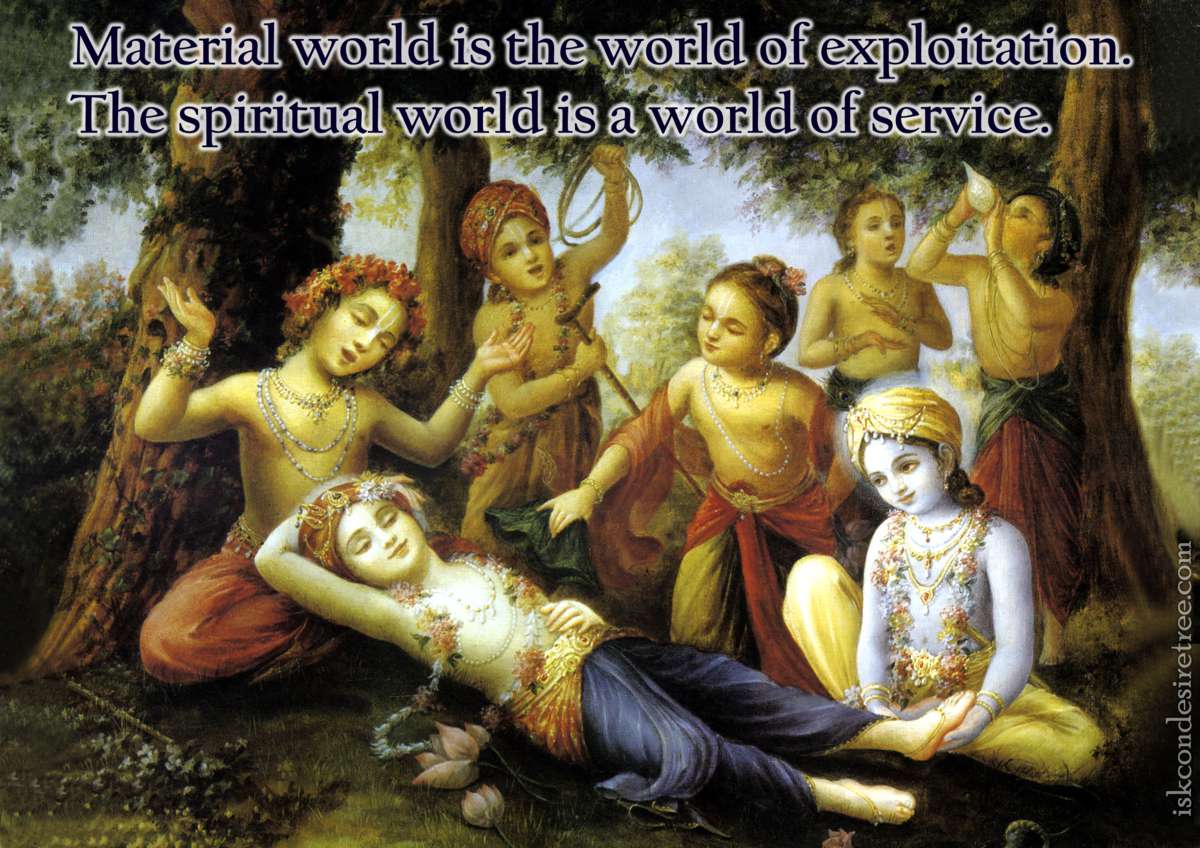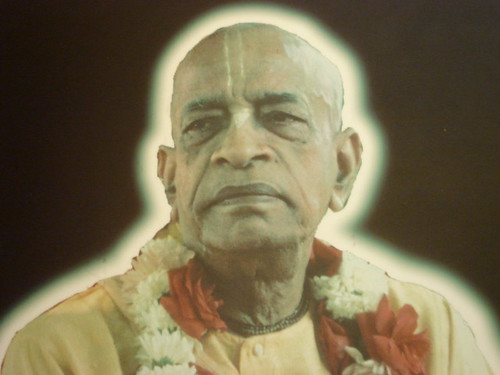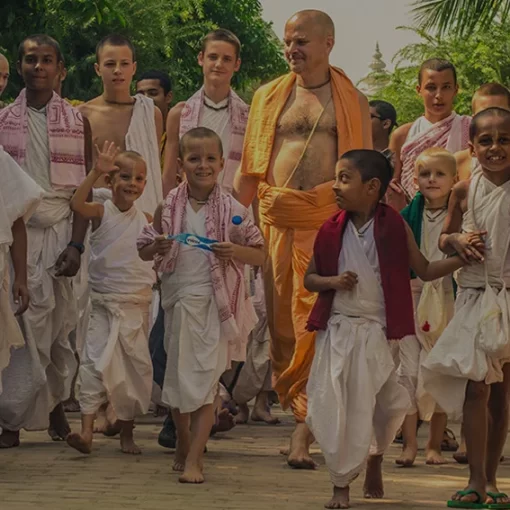Tabulation
Primary Rasas (Mukhya-rasa)
These are the foundational relationships devotees have with Krishna.
| Rasa (Relationship) | Devotees |
|---|---|
| 1. Śānta (Neutrality) – Detached reverence and meditative devotion | The Four Kumāras (Sanaka, Sanātana, Sanandana, Sanat-kumāra), Śukadeva Gosvāmī, Nārada Muni (before becoming a pure devotee), Maharṣi Vyāsadeva, Atri Muni, Maharṣi Vasiṣṭha, Agastya Muni, Pṛthu Mahārāja, Markandeya Rishi, Bhīṣma (in his early life), Gautama Muni, Dattātreya. |
| 2. Dāsya (Servitude) – Krishna as the Supreme Master | Hanumān (in Dvārakā), Uddhava, Daruka (Krishna’s charioteer), Jaya and Vijaya (as Viṣṇu’s gatekeepers), Garuḍa, Yamarāja, Viṣṇudūtas, Sūta Gosvāmī, Akrūra, Mahārāja Ambarīṣa, Bali Mahārāja (post-surrender), Vidura, Śrutadeva (brāhmaṇa of Mithilā), Nanda and Sunanda (Vaikuṇṭha gatekeepers), Sudāmā Vipra (the brahmin friend of Krishna). |
| 3. Sakhya (Friendship) – Krishna as an equal companion | Arjuna, Bhīma, Draupadī (as Krishna’s confidential well-wisher), Śrīdāmā, Sudāmā (cowherd boy), Subala, Vasudāma, Stoka-Kṛṣṇa, Bhadrasena, Devaprastha, Ujjvala, Lavanga, Kokila, Arjuna (cowherd boy, different from Pāṇḍava), Madhumaṅgala (joking friend of Krishna), Yudhiṣṭhira, Nakula, Sahadeva. |
| 4. Vātsalya (Parental Affection) – Krishna as a child | Nanda Mahārāja, Mother Yaśodā, Rohiṇī Devī, Vasudeva, Devakī, Ugrasena, Parjanya Mahārāja (Krishna’s grandfather), Mukhara (Rādhārāṇī’s grandmother), Gargamuni (who performed Krishna’s name-giving ceremony), Mādhavī (nurse of Krishna), Mahārāja Daśaratha (in previous birth, as Vasudeva). |
| 5. Mādhurya (Conjugal Love) – Krishna as the beloved | Gopīs: Śrīmatī Rādhārāṇī, Lalitā, Viśākhā, Aṣṭa-sakhīs (eight principal gopīs), Candrāvalī, Śyāmala, Bhadra, Rādhā’s Sakhīs (Champakalatā, Citrā, Indulekhā, Tungavidyā, Raṅgadevī, Sudevī). Queens of Dvārakā: Rukmiṇī, Satyabhāmā, Jāmbavatī, Kalindī, Mitravindā, Lakṣmaṇā, Bhadrā, sixteen thousand queens of Krishna. Others: Kubjā (the hunchback woman of Mathurā), Satyā (daughter of Nagnajit). |
Secondary Rasas (Gauna-rasa)
These are supplementary relationships that intensify the devotee’s interaction with Krishna.
| Rasa (Relationship) | Devotees |
|---|---|
| 6. Vīra (Chivalry, Heroism) | Bhīṣmadeva (as Krishna’s warrior-opponent in Kurukṣetra), Arjuna (as Krishna’s heroic devotee), Mahārāja Pṛthu, King Parīkṣit, Jambavān (who fought Krishna for the Syamantaka jewel), Duryodhana (though envious, was absorbed in Krishna), Karṇa (though an opponent, fought Krishna indirectly), Lord Śiva (as a warrior against Krishna in Bāṇāsura’s battle). |
| 7. Karuṇa (Compassion, Mercy) | Vidura (compassionate towards Dhṛtarāṣṭra), Vasudeva and Devakī (lamenting for Krishna’s struggles despite being the Supreme Lord), the gopīs (when Krishna left for Mathurā), Draupadī (praying for the welfare of the Pāṇḍavas and Krishna). |
| 8. Raudra (Anger, Fury) | Bhīṣma (angry at Krishna in the battle of Kurukṣetra), Śiśupāla (constantly abusing Krishna but attained liberation), Dantavakra (another envious devotee), Jarāsandha (enemy of Krishna, obsessed with Him), Pauṇḍraka (imitator of Krishna). |
| 9. Bhayānaka (Fear, Terror) | Kaṁsa (constantly feared Krishna’s arrival), the Kālīya serpent (terrified of Krishna after being defeated), Rukmi (who feared Krishna after being defeated). |
| 10. Bībhatsa (Disgust) | Duryodhana (who detested Krishna’s instructions), Śiśupāla (constantly speaking ill of Krishna but attained liberation). |
| 11. Hāsya (Humor, Joking) | Madhumaṅgala (Krishna’s childhood friend and jester), Duryodhana (his slipping into a pond in Krishna’s palace was a humorous pastime), Draupadī (at times joked with Krishna). |
| 12. Adbhuta (Wonder, Awe-inspiration) | Arjuna (seeing Krishna’s universal form), Vasudeva and Devakī (witnessing Krishna’s divine pastimes), Yashodā (seeing the universe in Krishna’s mouth), Nārada Muni (constantly amazed by Krishna’s activities). |
Summary Table of Rasa Categories
| Rasa Type | Rasa Name (English) | Main Devotees |
|---|---|---|
| Primary | Śānta (Neutrality) | Four Kumāras, Śukadeva Gosvāmī, Nārada Muni (before devotional awakening) |
| Primary | Dāsya (Servitude) | Hanumān, Uddhava, Daruka, Viṣṇudūtas, Garuḍa, Jaya-Vijaya, Ambarīṣa Mahārāja |
| Primary | Sakhya (Friendship) | Arjuna, Bhīma, Sudāmā, Subala, Stoka-Kṛṣṇa, Madhumaṅgala |
| Primary | Vātsalya (Parental Affection) | Nanda, Yaśodā, Vasudeva, Devakī, Rohiṇī, Ugrasena |
| Primary | Mādhurya (Conjugal Love) | Rādhārāṇī, Aṣṭa-sakhīs, Rukmiṇī, Satyabhāmā, Kubjā |
| Secondary | Vīra (Chivalry, Heroism) | Bhīṣma, Arjuna, Jambavān, Pṛthu Mahārāja |
| Secondary | Karuṇa (Compassion, Mercy) | Vidura, Vasudeva-Devakī, Draupadī |
| Secondary | Raudra (Anger, Fury) | Bhīṣma (against Krishna in battle), Śiśupāla |
| Secondary | Bhayānaka (Fear, Terror) | Kaṁsa, Kālīya, Rukmi |
| Secondary | Bībhatsa (Disgust) | Duryodhana, Śiśupāla |
| Secondary | Hāsya (Humor, Joking) | Madhumaṅgala, Draupadī (at times), Duryodhana (slipping in a pond) |
| Secondary | Adbhuta (Wonder, Awe-inspiration) | Arjuna (seeing Krishna’s universal form), Yaśodā (seeing the universe in Krishna’s mouth) |
Expanded Explanation of Each Rasa (Relationship) with Krishna
Primary Rasas (Mukhya-rasa)
These are the fundamental relationships that define a devotee’s eternal connection with Krishna.
1. Śānta-rasa (Neutrality) – Detached Reverence
- Nature: Devotees in this rasa appreciate Krishna’s greatness and meditate on Him but do not engage in active service or personal pastimes with Him.
- Key Devotees:
- Four Kumāras (Sanaka, Sanātana, Sanandana, Sanat-kumāra) – Great jñānīs who later became devotees after smelling the tulasī at Lord Vishnu’s feet.
- Śukadeva Gosvāmī – Initially an impersonalist but became a pure devotee.
- Vyāsadeva – Author of Śrīmad-Bhāgavatam; realized Krishna as the Supreme Truth.
- Nārada Muni (before devotional awakening) – Earlier meditated on the Lord in awe and reverence.
- Pṛthu Mahārāja – A king who ruled as a representative of Krishna.
- Gautama Muni & Other Sages – Engaged in deep meditation on the Absolute Truth.
- Example Pastime: The Four Kumāras, initially Brahman-realized, experienced bhakti when they smelled the fragrance of Krishna’s feet at Vaikuṇṭha’s gates.
2. Dāsya-rasa (Servitude) – Krishna as the Supreme Master
- Nature: Devotees serve Krishna as their Lord, feeling subordinate to Him.
- Key Devotees:
- Hanumān – Though a devotee of Lord Rāma, he also served Krishna in Dvārakā.
- Uddhava – Krishna’s chief minister in Dvārakā and a great devotee.
- Daruka – Krishna’s charioteer, always engaged in His service.
- Garuḍa – Krishna’s eternal bird-carrier.
- Akrūra – Krishna’s uncle and great devotee.
- Ambarīṣa Mahārāja – A king fully absorbed in Krishna’s service.
- Sudāmā Vipra – A poor brāhmaṇa, childhood friend of Krishna, and surrendered devotee.
- Example Pastime: Uddhava was sent to Vṛndāvana to console the gopīs, but he realized their love was far beyond mere servitude.
3. Sakhya-rasa (Friendship) – Krishna as a Friend
- Nature: Devotees see Krishna as an equal and play with Him in an intimate, friendly manner.
- Key Devotees:
- Arjuna – Krishna’s best friend in the Mahābhārata.
- Bhīma, Draupadī – Saw Krishna as their friend and protector.
- Śrīdāmā, Sudāmā, Subala, Vasudāma – Krishna’s intimate cowherd friends in Vṛndāvana.
- Madhumaṅgala – A funny, joking friend of Krishna.
- Example Pastime: Krishna carried Arjuna’s chariot but never treated him as a servant, showing their deep friendship.
4. Vātsalya-rasa (Parental Affection) – Krishna as a Child
- Nature: Devotees love Krishna as their own child and feel responsible for His well-being.
- Key Devotees:
- Nanda Mahārāja & Yaśodā – Krishna’s foster parents in Vṛndāvana.
- Rohiṇī Devī – Balarāma’s mother, who cared for Krishna.
- Vasudeva & Devakī – Krishna’s biological parents.
- Gargamuni – Krishna’s astrologer and well-wisher.
- Mukhara – Rādhārāṇī’s grandmother, who loved Krishna dearly.
- Example Pastime: Mother Yaśodā bound Krishna with ropes (Dāmodara-līlā), an example of intimate parental love.
5. Mādhurya-rasa (Conjugal Love) – Krishna as the Beloved
- Nature: Devotees love Krishna as their eternal beloved, experiencing divine romance.
- Key Devotees:
- Śrīmatī Rādhārāṇī – Krishna’s eternal consort.
- Aṣṭa-sakhīs (Lalitā, Viśākhā, Citrā, etc.) – Rādhā’s close friends.
- Kubjā – A hunchback woman in Mathurā who Krishna blessed.
- Rukmiṇī, Satyabhāmā – Krishna’s chief queens in Dvārakā.
- Example Pastime: Rādhā and Krishna’s rāsa dance symbolizes the highest love between the soul and God.
Secondary Rasas (Gauna-rasa)
6. Vīra-rasa (Chivalry, Heroism)
- Nature: Devotees express valor and strength in Krishna’s service.
- Key Devotees: Bhīṣma, Arjuna, Mahārāja Pṛthu, Jambavān.
- Example: Krishna fought Jambavān for 28 days to retrieve the Syamantaka jewel.
7. Karuṇa-rasa (Compassion, Mercy)
- Nature: Devotees feel deep compassion towards Krishna and others.
- Key Devotees: Vidura, Draupadī, Vasudeva & Devakī.
- Example: Draupadī’s prayer for the welfare of the Pāṇḍavas.
8. Raudra-rasa (Anger, Fury)
- Nature: Devotees express anger at Krishna or His enemies, which intensifies their connection.
- Key Devotees: Bhīṣma (fought Krishna in battle), Śiśupāla, Jarāsandha.
- Example: Krishna let Śiśupāla abuse Him 100 times before finally killing him.
9. Bhayānaka-rasa (Fear, Terror)
- Nature: Some devotees relate to Krishna through fear.
- Key Devotees: Kaṁsa (constantly feared Krishna’s arrival).
- Example: Kaṁsa’s nightmares about Krishna’s birth.
10. Bībhatsa-rasa (Disgust)
- Nature: Devotees show disgust toward Krishna but remain absorbed in Him.
- Key Devotees: Duryodhana, Śiśupāla.
- Example: Duryodhana insulted Krishna but was constantly thinking of Him.
11. Hāsya-rasa (Humor, Joking)
- Nature: Devotees joke with Krishna or become the object of His humor.
- Key Devotees: Madhumaṅgala (Krishna’s funny friend).
- Example: Duryodhana slipping into a pond in Krishna’s palace.
12. Adbhuta-rasa (Wonder, Awe-inspiration)
- Nature: Devotees are awestruck by Krishna’s divinity.
- Key Devotees: Arjuna (seeing Krishna’s universal form), Yaśodā (seeing the universe in Krishna’s mouth).
- Example: Yaśodā looking into Krishna’s mouth and seeing all universes inside.




